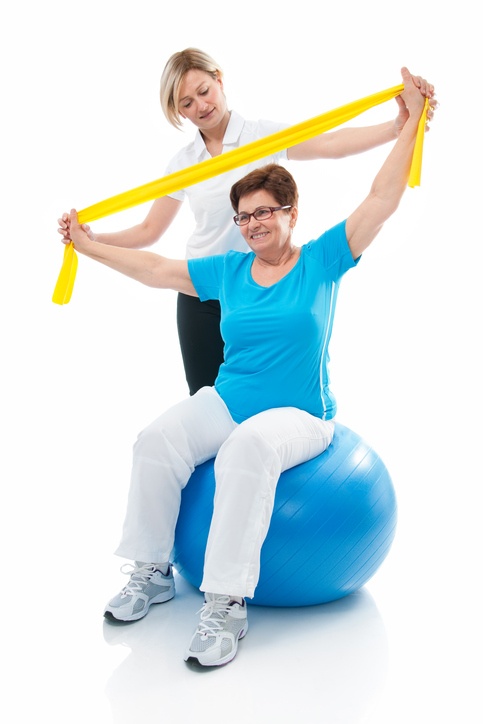As we age, some like to say they also "fall apart." Though some things may not work as they did when in our twenties, we are not just falling apart. Deterioration from a life well lived is how we need to view it. Most seniors have experienced aches and pains as time moves forward. For many, hip pain is what ails us and the solution comes down to a full hip replacement. Of course, no one wants surgery to remove our original parts that seemed so permanent up until the day we were told they were no longer good for our bodies. Fear not, hip replacement is a common surgery now. People are receiving hip replacements well into their 90s! This means that your post-surgical care is going to make all the difference in your mobility after surgery. It may seem daunting, and for many, is the scariest part of getting a new hip. With specialized care and an uplifting atmosphere it is possible! So, what makes hip replacement recovery for seniors a better experience? What should you expect? What should loved ones or caretakers expect?
As with any major surgery, you are going to need assistance with some very simple things the first couple weeks after surgery. Knowing ahead of time, talking with your doctors and surgeons to know what to expect is crucial. It will not only prepare your mind, but also ease it. During surgery, due to age, you may be given a different type of anesthesia. For example, there are a lot of cases of confusion under general anesthesia. A better option for elderly patients may be a regional anesthetic like an epidural. We know that the less mobile we are, the more at risk we are for pressure injuries and blood clots. Do not be surprised if you are being moved into motion shortly after you enter your recovery room. What about once you're discharged from the hospital? Choosing who will care for you is of utmost importance. You will need assistance with simple things like grabbing a cup of water, bathing, and moving around as exercise.
Of course, most people prefer going home with a loved one. Having someone stay with you or staying with someone who is home almost all day is your best option. You will need rides to your physical therapy appointments, follow up appointments and assistance with the prescribed exercises while at home. Setting up the home and area you will be confined to the first week or two is crucial. Having a "station" ready with your television remote, drinks, puzzles or other form of brain stimulation is a great idea. Making sure there are no lose rugs or slippery floors. Having space set aside for things that could come home with you such as a pump for inflatable leg wraps (for blood clots), an ice machine, and equipment to aid in walking and standing. Your caregiver can expect to help with all these things including helping you stand, walk, exercise, bathe, and fix meals. The caregiver will need to change your dressings and assist in changing clothes, especially socks. As a caregiver, the job of being positive and getting your patient on their feet, moving, according to the physical therapist's direction is key to a speedy and safe recovery. What if you need to go to a special facility to recover, though?
Perhaps the better option for you is to stay in a rehabilitation center where you will have help 24/7 and all your needs will be met without fail. This includes physical therapy, occupational therapy, and wound care. You will have a schedule with exercise plans and professionals to assist you, as an at home caretaker would. In this case though, prepare your bags ahead of time with ways of occupying your time in the first few days post-op. Bring loose clothing that will not bother your incision or hinder your mobility. Tell everyone where you are so they can visit and keep your spirits lifted because it always helps to see a friendly face.
Seniors deserve the chance at a painless life and the mobility of that of their younger years. Hip replacement recovery for seniors can be fast and uncomplicated. Please contact us for information.


